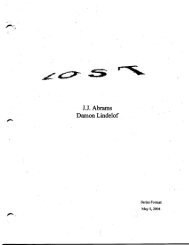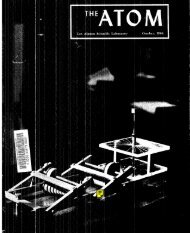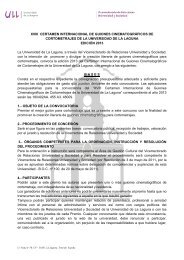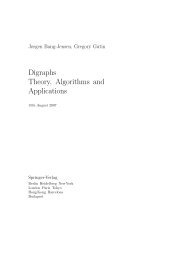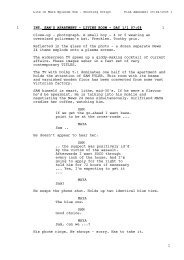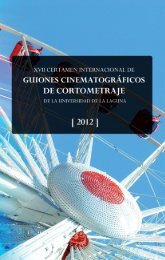You also want an ePaper? Increase the reach of your titles
YUMPU automatically turns print PDFs into web optimized ePapers that Google loves.
PROFILE<br />
tur the loue ol her $uhiect<br />
Marina Ratner's energetic path in mathematics<br />
by Julia Angwin<br />
UCKILY FOR HER, THE YEAR<br />
that Marina Ratner applied for<br />
college in the Soviet Union coincided<br />
with Nikita Khrushchev's<br />
denouncement of Stalin. It was 1956,<br />
and the young |ewish girl was trying<br />
to get into Moscow State University-the<br />
Harvard of the USSR. The<br />
doors to the university, normally frozen<br />
shut to )ews, opened a crack that<br />
year during the political thaw . . . and<br />
Marina Ratner slipped in.<br />
The training normally denied to<br />
people of her religion set Ratner on<br />
her course as a mathematician. She is<br />
now a professor at the University of<br />
California, Berkeley, and recently<br />
won a $25,000 award from the National<br />
Academy of Sciences.<br />
The awardrecognizes her "striking<br />
proof" of a fundamentally important<br />
theorem that originated in number<br />
theory and is called the Raghunathan<br />
conjectures. Previous attempts to<br />
prove the conjectures for some particular<br />
cases were very intricate and<br />
provided little insight into what<br />
was going on. Ratner tackled the<br />
proof using a branch of mathematics<br />
called ergodic theory that originated<br />
in the study of thermodynamics.<br />
The roots of the name are the<br />
Greek words erg(eneryyl andhodos<br />
(path). This area of mathematics is<br />
also closely related to probability<br />
theory and statistics. Ratner's<br />
knowledge of ergodic theory helped<br />
her come up with the ideas needed<br />
to prove the conjectures. Her solution<br />
led to further developments in<br />
number theory and the theory of<br />
quadratic forms.<br />
Ratner traces her interest in math<br />
partly to the tutelage of a particular<br />
high school teacher, although as the<br />
child of scientists she had always excelled<br />
in the subject.<br />
"Ireally got a lot out of that one<br />
teacher," she recalled. "He was very<br />
tough and he was very difflcult but<br />
interesting."<br />
About her life as a woman in<br />
mathematics, Ratner said: "I don't<br />
believe when they say that women<br />
have different brains, or that women<br />
arer't treated the same as men or<br />
boys. In my life I did not encounter<br />
any gender discrimination. "<br />
The most important thing for students<br />
is to love their subject, she<br />
said. That is how she won her<br />
teacher's love.<br />
"He would sometimes even ask<br />
me to help in grading the test that he<br />
had given the class," she recalled.<br />
He assigned the students difficult<br />
problems, teaching them to work in<br />
three dimensions as well as in plane<br />
geometry.<br />
"Even students whom he gave a<br />
C, they did very well in college<br />
tests," Ratner recalled.<br />
At Moscow State University, Ratner<br />
honed her mathematical skills.<br />
For four years she studied mostly<br />
math, peppering her curriculum<br />
with only physics classes and the<br />
required Marxism and Communist<br />
Party history courses.<br />
After that, she took a four-year<br />
hiatus, working in a statistics research<br />
group. She also gave birth to<br />
her daughter, Anna.<br />
When Anna was three years old,<br />
her mother went back to school to<br />
get her Ph.D. in mathematics. Russian<br />
students could stay in graduate<br />
school a maximum of three years. If<br />
their doctorate took any longer, they<br />
had to complete it on their own. So,<br />
by 1959, Ratner had her doctorate<br />
and was looking for work.<br />
She taught for a while at a technica1<br />
engineering school, but quickly<br />
decided to emigrate to Israel. She applied<br />
for a visa and was immediately<br />
fired from her fob.<br />
"It was considered unpatriotic and<br />
they called us traitors just because we<br />
wanted to emigrate," she recalled.<br />
Fortunately her visa took only<br />
three months to arrive, and she<br />
quickly joined her relatives in Israel.<br />
After a few years' teaching at the<br />
Hebrew University of |erusalem, she<br />
was hired by the University of Califomia<br />
at Berkeley.<br />
"I liked America from the very<br />
first day, despite the many things<br />
that are not good here," she said. "I<br />
think that not all Americans realize<br />
how great a country it is."<br />
This country is undoubtedly the<br />
richer for the influx of such talented<br />
scholars as Marina Ratner. The<br />
award she received is merely a sign<br />
of what she had aheady given her<br />
adopted land.<br />
o<br />
44 JUI.Y/AUEUST ISS4



